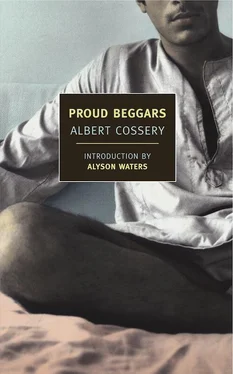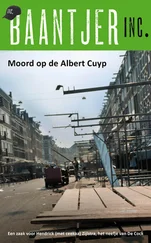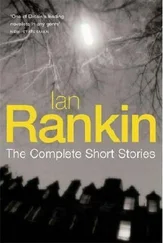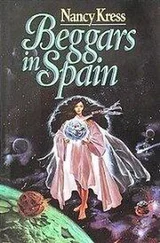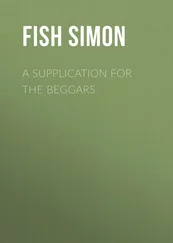“I’m listening.”
“Well, such as I am, I am involved in a sentimental adventure.”
“Congratulations! Who is the chosen one?”
“She is a girl who’s not like the others.”
“Stop right there,” said Gohar. “What exactly is a girl who is not like the others? My dear Yeghen, I thought you were more discerning.”
“I meant that she’s not a whore.”
“She’s a middle-class girl?”
“Yes. Probably the daughter of a civil servant.”
“Oh, how terrible! Are you in love with her?”
“You take me for El Kordi. Master, I’m not a child.”
“El Kordi isn’t a child either,” said Gohar. “Believe me, you misjudge him. He’s simply under the influence of an entire European literature that claims to make woman the center of a mystery. El Kordi struggles to believe that woman is a thinking being; his need for justice drives him to defend her as a social individual. But deep down he doesn’t believe it. All he asks of a woman is to sleep with him. And most of the time without paying, because he is poor.”
“But in my case the goal is different. I don’t want to sleep with her.”
“Platonic love! That’s even more serious.”
“It has nothing to do with love, Master. It’s something else.”
“What then?”
“I don’t know.”
Yeghen was quiet. He had just noticed a band of unkempt children standing in the entrance to the shop, listening to their conversation in meditative silence. They seemed dumbfounded by what they’d just heard.
“This is a nonsmoking salon,” he said. “There are no cigarette butts here. You’re wasting your time.”
“We’re not looking for butts,” said an eight-year-old girl covered in multicolored rags. “We want to sleep. This is our place.”
“You want to sleep already? But it’s still too early. Go take a little walk.”
“Give me a piaster,” the little girl ordered. With her hennaed hair and the colors of her outfit, she looked like a dirty doll.
“A piaster!” Yeghen said indignantly. “What do you want a piaster for? Aren’t you ashamed to beg? Go on, leave us alone. We have serious things to discuss.”
“Let’s go,” said the girl with a disdainful look. “They’re pederasts.”
“Here indeed are the misdeeds of darkness!” said Yeghen.
The band of children stationed themselves not far from the shack. Yeghen kept them in sight; he saw them scuffling about and trading insults. No doubt they were planning the best way to get the adults out of the place. Yeghen knew they were a persistent bunch and that they would return to the attack.
This place was becoming excessively perilous.
“To tell the truth, that girl amuses me.”
“Who, the cigarette scavenger?” asked Gohar.
“No, Master! The civil servant’s daughter. Imagine! She looked at me without disgust. And in full light. She even smiled at me. I almost think she finds me attractive.”
“You’re not going to become conceited, are you?” Gohar asked worriedly. “So then, she’s appealing to your vanity. My dear Yeghen, that girl is an abyss of perversity.”
“I forgot to tell you that she takes piano lessons.”
Gohar didn’t have time to answer. Again, they were disturbed. This time it was a whining, one-armed lottery-ticket vendor. In his good hand he was holding a last dirty, crumpled ticket, probably picked up on the ground.
“How much does that ticket win?” Yeghen asked.
“A thousand pounds, sir,” the man answered.
“That’s not enough. Do you have one that wins ten thousand?”
“There aren’t any tickets that win ten thousand pounds. Only a thousand. And this is the winning ticket. Buy it from me. May Allah augment your prosperity.”
“Go on, get out of here. A thousand pounds! That’s only good for a bum.”
The man went off into the shadows of the vacant lot, murmuring vague insults against what seemed to be a demanding, shrewish wife.
“Can you imagine, Master, if we had a thousand pounds?”
“For what, my son?”
“You could finally go to Syria.”
The allusion to this journey wounded Gohar instead of pleasing him, for, indirectly, it reminded him of his crime. Another dream was crumbling. Would he ever make this journey now? He had just spoiled what was perhaps his only escape from the anguish in which the world was floundering. It was painful to renounce that paradisiacal Syria he had conjured up and where he wanted to spend happy days. It was only a dream, true, but wasn’t renouncing a dream the most horrible renunciation?
“I could even accompany you,” Yeghen continued.
Gohar turned his head and looked at his companion. How could he tell him that it was no longer possible; how could he explain his dreadful crime to him? He didn’t feel ready for such a confession. Later, perhaps, he would tell him everything.
Yeghen’s face contorted in astonishment; El Kordi’s silhouette stood out against the opening to the shack.
“A frightful thing has happened! I’m beside myself.”
The two men were not at all concerned by this preamble. It was part of a kind of ritual. El Kordi usually approached people with the vehemence of a man who had just escaped a massacre. He needed some time to compose himself, so they abstained from questioning him. They waited patiently for him to tell them the subject of his affliction.
In this concerted silence, El Kordi sighed.
“I warn you, it’s not a joke,” he said. “I just left Set Amina’s. The house is teeming with policemen.”
“A police raid!” Yeghen exclaimed.
“No! That’s what I thought at first, but it’s much worse. Someone just killed Arnaba, the new girl.”
Having obtained his surprise effect, El Kordi calmed down. He now could consider the event from a less tragic angle.
“Do they know who the killer is?” Yeghen asked.
“No, all they know is that he didn’t steal anything. He simply strangled the girl. That’s what is driving the police inspector crazy. He can’t find a motive. I came here precisely to warn you not to go there. I went through an interrogation; it was very rough.”
“What kind of interrogation? Did they beat you?”
“They didn’t dare. When I told them I was a government worker the inspector quickly changed his tone. That seemed rather fishy. He’s a funny fellow. Do you know that he suddenly began to speak to me in English?”
“No!” said Yeghen. “In English!”
“Exactly. But Set Amina didn’t like it. She was infuriated that people were speaking English in her house.”
“I know that kind of policeman. He wanted to impress you.”
“No one impresses me,” said El Kordi.
He began to describe his interrogation, reserving the best role for himself, insisting on the revolutionary implications of his answers to the inspector. From his story it became clear that he had undergone violent questioning but had defended himself with the utmost energy.
“I literally stunned him. He didn’t know how to extricate himself.”
Seeing that Gohar wasn’t saying anything, he grew quiet. His master’s silence on such an important affair that touched everyone so closely seemed inexplicable. Was he, by chance, dead in his chair?
“What do you think, Master? I would like to know your opinion. It is a sinister crime, isn’t it?”
“Perhaps it was an error, my son,” answered Gohar, as if he were talking to himself.
“An error! What are you saying, Master?”
Then without a transition, El Kordi broke out laughing.
“Ah, I forgot to tell you that there was an extraordinary fellow there. He pretended to be the friend of a minister.”
Just then a barefoot man wearing rags pushed El Kordi aside and entered the shop; he looked frantic.
Читать дальше
